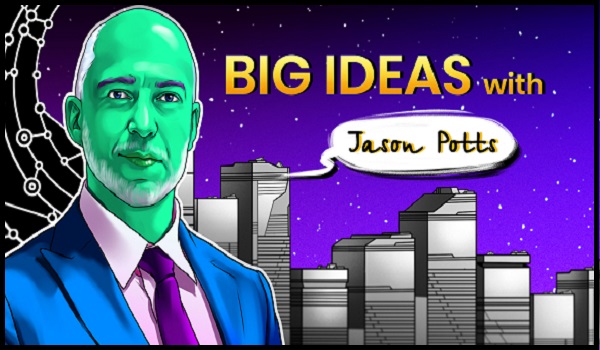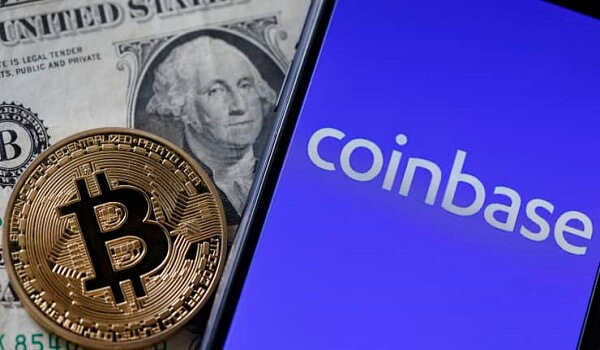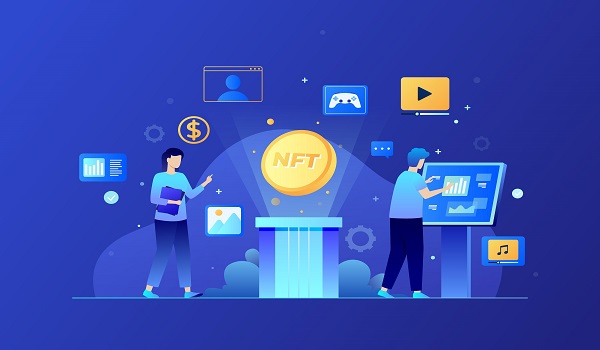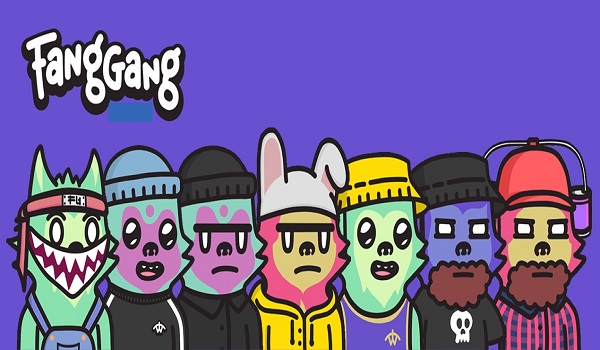Blockchain technology which emerged in 2008, gives exponential opportunities to tech-savvy people and now it has gone through tremendous upgrades.
A blockchain is a digital ledger of transactions that are matched and distributed across the whole network of computer systems on the blockchain. In this chain, each block holds several transactions. Whenever a fresh transaction happens on the blockchain, a record of that deal is attached to every candidate’s ledger.
Documents can be made, embedded in digital code, stored in shared databases, and shared across a network without being copied or transferred using blockchain technology. These are protected from deletion, and revision too. Blockchain technology accelerates peer-to-peer transactions by eliminating intermediaries such as a bank, lawyers, broker, or governing body. Blockchain maintains user’s information anonymous.
Blockchain technology has considerably hit the Internet of Things (IoT) space, with a hike in the application of IoT in vehicles. With this, the IoT industry has reached an estimated figure of $50 billion in revenue as per the various market analysis. Industries are adopting blockchain technology widely and steadily and as popularity increases, it is set to cross $60 billion by 2024.
(Source: todayuknews)
Blockchain Is World-Changing As The Invention Of Electricity: Jason Potts
Economics Professor Jason Potts is the author of numerous books about blockchain. He is currently in the role of a co-director of Blockchain Innovation Hub housed at the RMIT University in Melbourne, Australia. He observes blockchain technology as a basic institutional technology rebellion similar to the exposure of different firms and the internet. He considers the innovation of blockchain technology as world-changing like the invention of electricity.
Blockchain is an institutional technology. Like every other technology, blockchain allows us to coordinate on shared information and truth. Using blockchain we can find out who owns a particular asset or property. The basic truth about ownership, or who has agreed to buy something, etc can be found out using it. Details about identity can also be discovered using blockchain.
Blockchain allows us to rely on information which enables us to develop a global digital economy on top of it, says Jason Potts. Using this fundamental institutional technology, people or companies will be able to create a shared agreement about the sorts of facts, portray those in digital form that support a modern economy.
This is the innovation that blockchain technology put forward. It put forward a distributed decentralized channel for having that particulars be trusted, Jason Potts added.
Jason Potts sees the emergence of blockchain as an infrastructural revolution. He predicts a big scope of cutting down administrative costs and infrastructural costs that have been around. The type of administration work required to verify everyone else’s work is huge. Also confirming that a person has all the rights to trade the thing they’re attempting to trade and certifying their identity are difficult tasks. All these kinds of administration which involve a high amount of money will have the opportunity to be automated. It can be used toward R&D which can fuel an infrastructural revolution.
Jason Potts’s venture Blockchain Innovation Hub at RMIT University made an effort to calculate the cost of trust in the economy. They evaluated about $29 trillion worth of the modern economy there to allow us to trust that certain things have occurred, or that information is correct.
Electricity was a fresh way forward in the global power sector. but the application of blockchain technology seems to be speeding up, says Jason Potts. All thanks to the spread of the internet across the globe. A major portion of the economy s already digitized. Blockchain can make use of the situation only if digitization is present there. “We’re 10 years into what I think is probably going to be a 20-year process”, added Jason Potts.
Jason Potts is saying that we will find two or three big corporations in the coming days due to the rise of blockchain as a coordinating factor. He states that blockchain technology disorder the productivity of big organizations.
It allows people to create pacts, contract with each other, and make cooperative agreements to do things employing peer-to-peer distributed blockchain technologies. Through this new way, immense numbers of people can join their hands and give insurance to each other or arrange savings, investments, and loans. Firms don’t need to be big. People can allocate less time to control it.
During the growth too, the world-changing blockchain technology faced some red flags. It can’t cure-all panacea for the world’s problems. The imaginary world of blockchain failed because we still didn’t have digital money or firms to deliver all of these things. Censorship resistance and expertise of actors, policies, firms, or governments — or partnership of others to monitor and restrict individuals in this room were also created issues, he added.
Jason Potts is also worried about ending up in a bipolar or multipolar world.







